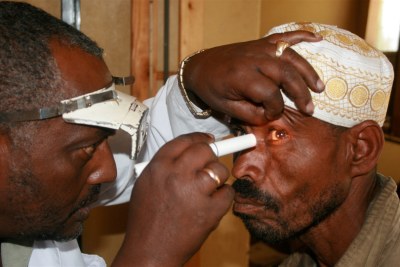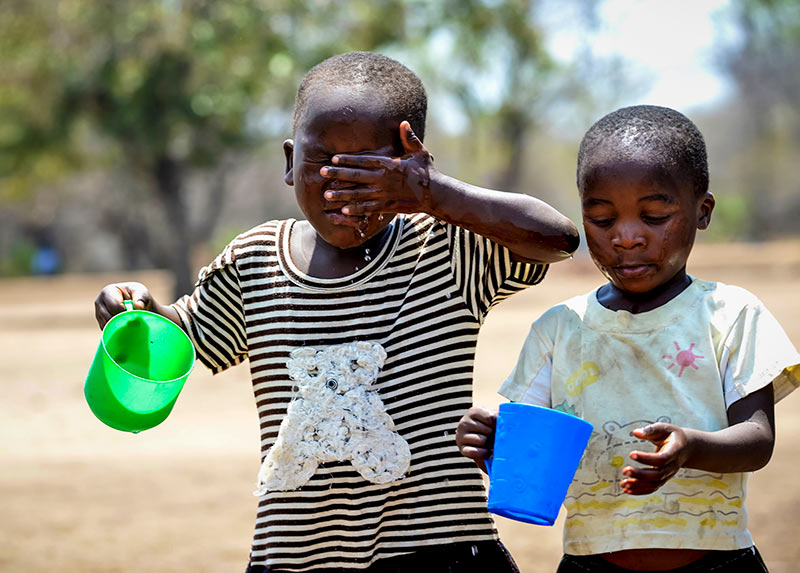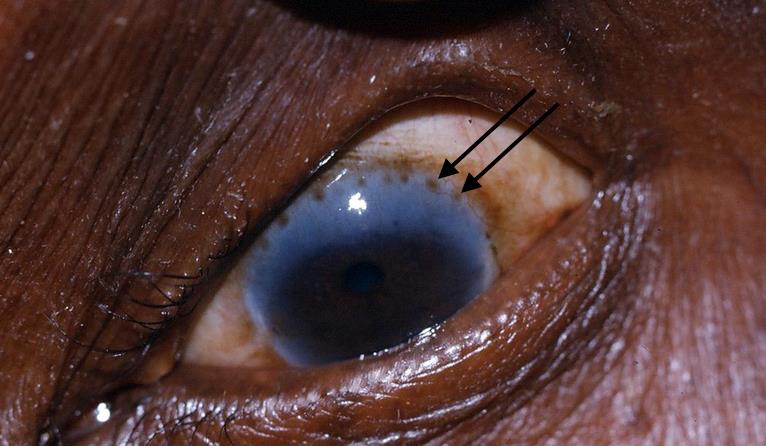
Malawi has become the first country in southern Africa and the fifth in Africa to eliminate trachoma as a public health problem – a disease that affected 7.6 million people nationwide in 2015. The disease is a devastating condition which can turn eyelashes inwards so that they scrape painfully against the eyeball – left untreated, this can cause permanent sight loss.
The elimination, announced by the World Health Organization (WHO) on September 21, 2022, follows 12 years of sustained action led by the Government of Malawi with a network of support spearheaded by the non-profit Sightsavers. It is the first country funded by The Queen Elizabeth Diamond Jubilee Trust to achieve this milestone. The Trust was established in 2012 to create a legacy for Her Majesty Queen Elizabeth II, by making a major contribution to the elimination of trachoma in the Commonwealth.
Malawi’s announcement follows recent elimination successes in other African countries, namely Morocco, Ghana, The Gambia and Togo. Trachoma is the second neglected tropical disease (NTD) the country has eliminated in recent years, following its elimination of lymphatic filariasis (or elephantiasis) in 2020 – the result of the country’s comprehensive mass drug administration programme began in 2008.

Malawi’s president speaks on the success
H.E. Lazarus McCarthy Chakwera, President of Malawi, “I am proud to lead Malawi’s celebration in defeating yet another neglected tropical disease. This success in eliminating trachoma – the world’s leading cause of infectious blindness – coming so soon after our country celebrated the elimination of elephantiasis in 2020, shows the fight against neglected tropical diseases can be won.”
“I would like to pay special tribute to our wonderful community health workers, many of them women, who played an instrumental role in getting us here, freeing millions of our citizens from so much misery caused by these diseases. We now hope to replicate this success across other NTDs. We may be the first in the Southern African Development Community (SADC), but we are determined not to be the last. I urge my fellow Heads of State to endorse the Kigali Declaration on NTDs and commit to its delivery as a gateway to ending NTDs.”
Trachoma is one of the leading causes of blindness worldwide. It stops children going to school and adults from working, trapping people in poverty. The disease affects largely rural and marginalised communities, with infection spreading through personal contact (via hands, clothes or bedding) and by flies that have been in contact with discharge from the eyes or nose of an infected person. Additionally, trachoma-related blindness is two to four times higher in women than in men.

“Africa is building momentum against trachoma,” said Dr Matshidiso Moeti, WHO Regional Director for Africa. “Over the last eight years, five countries have eliminated this preventable disease. In Malawi, years of tireless efforts have paid off. The painful suffering and the risk of permanent blindness from trachoma no longer threaten millions of children and their families.”
In the past 20 years, the number of people at risk of trachoma has dropped by 92%, from around 1.5 billion people in 2002 to 125 million worldwide today, according to recent WHO figures. But the condition still affects people in more than 40 countries, the vast majority of whom are in Africa – leading to the visual impairment or permanent sight loss of nearly 2 million people per year.
“Eliminating a disease on this scale is a massive achievement for our country,” said Bright Chiwaula, Sightsavers’ Malawi Director. “Today, 7.6 million people are no longer at risk of losing their sight to trachoma thanks to hard work, commitment and collaboration between government, health workers, volunteers and organisations like Sightsavers. Malawi’s triumph provides hope and encouragement to our neighbours still working to eliminate the disease. To these countries I say: the strategy we are using works, keep going!”
To achieve elimination, the Ministry of Health and its partners followed the WHO-endorsed SAFE strategy which combines surgery to stop eyelashes scraping the eye, antibiotics to prevent and treat infection, and facial cleanliness and environmental improvements to stop infection spreading. This included:
- Working with thousands of volunteers, trained to go into their communities to distribute 22.25 million drug treatments of Zithromax®, donated free of charge by Pfizer Inc.
- Training local surgeons to manage more than 6,000 advanced cases of trachoma.
- Supporting more than 250 schools to adopt improved hygiene and sanitation programmes and encouraging children to use their influence to encourage their families and communities to do the same.
Malawi is also committed to fighting NTDs more broadly, as demonstrated by becoming one of the first endemic countries to endorse the Kigali Declaration on NTDs – a high level political Declaration led by endemic countries that is mobilising political will and securing commitments to achieve global NTD goals.
Trachoma is one of 20 NTDs identified by WHO. NTDs cause immeasurable suffering to more than 1.7 billion people around the world. They debilitate, disfigure and can be fatal – but they are all preventable and treatable.
The NTD road map 2021–2030, endorsed by the World Health Assembly in 2020, set 2030 as the target date for global trachoma elimination, alongside a number of other NTDs. With Malawi’s recent achievement, 15 countries around the world have now eliminated the disease.
SOURCE: AFRICA SCIENCE NEWS
